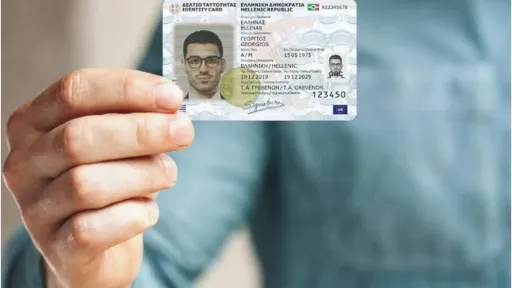Millions still await new Greek ID cards as EU deadline nears

Greece is struggling to replace its outdated national identification cards ahead of a critical European Union deadline, with fewer than one-third of citizens having received the new IDs so far.
Since the program’s launch in September 2023, only 2.5 million of the country’s 9 million identity cards have been issued. Under EU Regulation 2019/1157, identity cards lacking machine-readable zones will no longer be valid for travel within the Schengen Area after August 3, 2026.
Greece remains the only EU member state still using the old-format IDs, highlighting the scale of the challenge facing authorities.
The rollout has been plagued by inefficiencies, leaving citizens scrambling for appointments—particularly in Athens and Thessaloniki, where nearly half of the nation’s population lives.
Official data suggest that under normal conditions, up to 12 million appointments could have been completed by now. Yet, available slots remain scarce.
Each appointment typically takes about 15 minutes. Across 370 police departments, 450 workstations operate in two six-hour shifts daily, theoretically allowing for up to 21,000 applications to be processed each day.
However, appointments are currently scheduled every 22 minutes, despite the actual processing time being just 10 to 12 minutes. Many emergency slots go unused, while a significant number of citizens fail to show up for their appointments—leaving police officers idle and forcing desperate Athenians to seek openings in faraway towns such as Poros, Corinth, and Astros in Kynouria.
To ease the backlog, extended operating hours were introduced in October at 33 police offices across the Athens metropolitan area.







